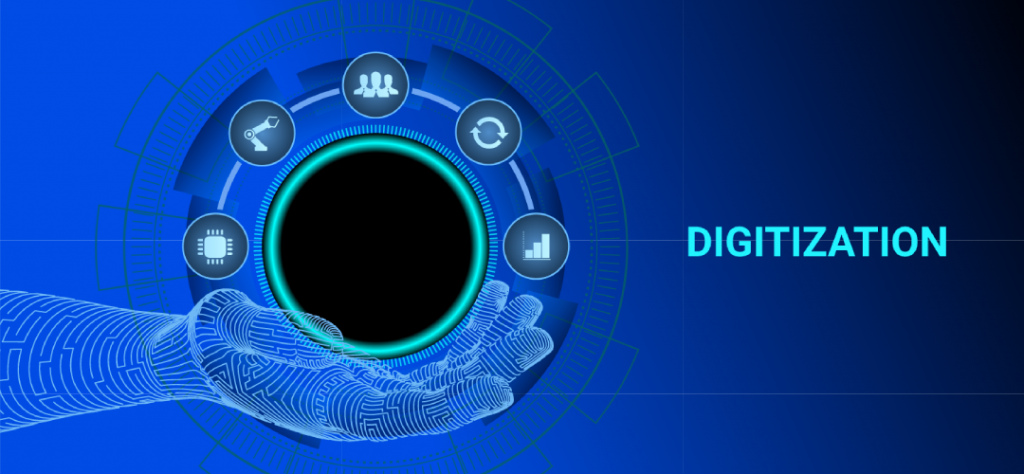Digitization


What is Digitization?
The process of transforming information into a digital (i.e. computer-readable) format is known as digitization. The end result is a representation of an object, image, sound, document, or signal (typically an analog signal) generated by generating a series of numbers describing a discrete set of points or samples.
The end product is known as digital representation or, more precisely, a digital image for the object and digital form for the signal.
Understanding Digitization
In modern practice, digitized data takes the form of binary numbers, which facilitates processing by digital computers and other operations; however, digitizing simply refers to “the conversion of analog source material into a numerical format”; the decimal or any other number system can be used instead.Because it “allows information of all kinds in all forms to be conveyed with the same efficiency and also intermingled,” digitization is critical to data processing, storage, and transmission. Though analog data is normally more stable, digital data has the potential to be more easily shared and accessed, and, in theory, can be transmitted indefinitely without generation loss if transferred to new, stable formats as needed. This potential has resulted in institutional digitization efforts aimed at improving access, as well as the rapid expansion of the digital preservation profession.
Read related articles:
« Back to Glossary IndexDisclaimer
In line with the Trust Project guidelines, please note that the information provided on this page is not intended to be and should not be interpreted as legal, tax, investment, financial, or any other form of advice. It is important to only invest what you can afford to lose and to seek independent financial advice if you have any doubts. For further information, we suggest referring to the terms and conditions as well as the help and support pages provided by the issuer or advertiser. MetaversePost is committed to accurate, unbiased reporting, but market conditions are subject to change without notice.
About The Author
Damir is the team leader, product manager, and editor at Metaverse Post, covering topics such as AI/ML, AGI, LLMs, Metaverse, and Web3-related fields. His articles attract a massive audience of over a million users every month. He appears to be an expert with 10 years of experience in SEO and digital marketing. Damir has been mentioned in Mashable, Wired, Cointelegraph, The New Yorker, Inside.com, Entrepreneur, BeInCrypto, and other publications. He travels between the UAE, Turkey, Russia, and the CIS as a digital nomad. Damir earned a bachelor's degree in physics, which he believes has given him the critical thinking skills needed to be successful in the ever-changing landscape of the internet.
More articles

Damir is the team leader, product manager, and editor at Metaverse Post, covering topics such as AI/ML, AGI, LLMs, Metaverse, and Web3-related fields. His articles attract a massive audience of over a million users every month. He appears to be an expert with 10 years of experience in SEO and digital marketing. Damir has been mentioned in Mashable, Wired, Cointelegraph, The New Yorker, Inside.com, Entrepreneur, BeInCrypto, and other publications. He travels between the UAE, Turkey, Russia, and the CIS as a digital nomad. Damir earned a bachelor's degree in physics, which he believes has given him the critical thinking skills needed to be successful in the ever-changing landscape of the internet.






















































